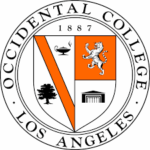LA COURT OF APPEALS Hears Oral Arguments in Critical Occidental Case. Uncertain Outcome.
In the early stages of the campus due process crisis, three cases in particular generated national attention—due to a combination of outrageous facts and a member of the national media choosing to examine the case in greater detail. One was Amherst, another was the University of Michigan, and the third case was Occidental, subject of this lengthy profile from Richard Dorment in Esquire. Amidst a campus environment as extreme on this issue as any in the country at any point since the Dear Colleague letter, Occidental returned a guilty finding despite an almost unprecedented occurrence—contemporaneous text messages from the accuser indicating that she had consented. The accuser herself said she was influenced to file charges by an activist Occidental professor, Danielle Dirks, who allegedly told her that the accused student “fit the profile of other rapists on campus in that he had a high GPA in high school, was his class valedictorian, was on [a sports] team, and ‘from a good family.’”
The accused student sued, both in state and federal court. The federal lawsuit was stayed, while state litigation proceeded at a glacial pace. In June 2017, Superior Court Mary Strobel ruled in Occidental’s favor, but in an almost apologetic fashion. Last week, the Occidental case finally reached the Court of Appeal. The oral argument, however, revealed few clues about a potential outcome. Doe’s lawyer, Mark Hathaway, effectively illustrated the absurdity of a scheme of absolute deference to the substance of decisions by a private institution—especially, as in a case like this, by a single person (the external adjudicator) hired by a private institution.
Two of the three judges had questions for Occidental’s lawyer, but they raised somewhat extraneous issues. First, Justice John Segal explored the disparate (and, presumably, gender-biased) manner through which Occidental handled the case. Two heavily intoxicated students had sex. But only one—the male—was punished. Either both should have been, or neither. Then, at the tail end of the oral argument, Justice Dennis Perluss raised an intriguing question about Occidental’s odd definition of sexual assault, which, as written, prohibited both sexual contact without “effective consent,” but also while incapacitated. Perluss seemed puzzled by the superfluous language.
The resulting decision will be of unusual importance. Of the more than 500 lawsuits since the Dear Colleague letter, only the Amherst accused student had clearer evidence that the accuser had actually consented. If the Court says that Occidental had “substantial evidence” for its finding in this case, the standard would basically translate into a rubber stamp.
The audio of the entire oral argument is here.
academicwonderland-KC Johnson
The War Inside Occidental over Title IX and Sexual Assault-SOS

